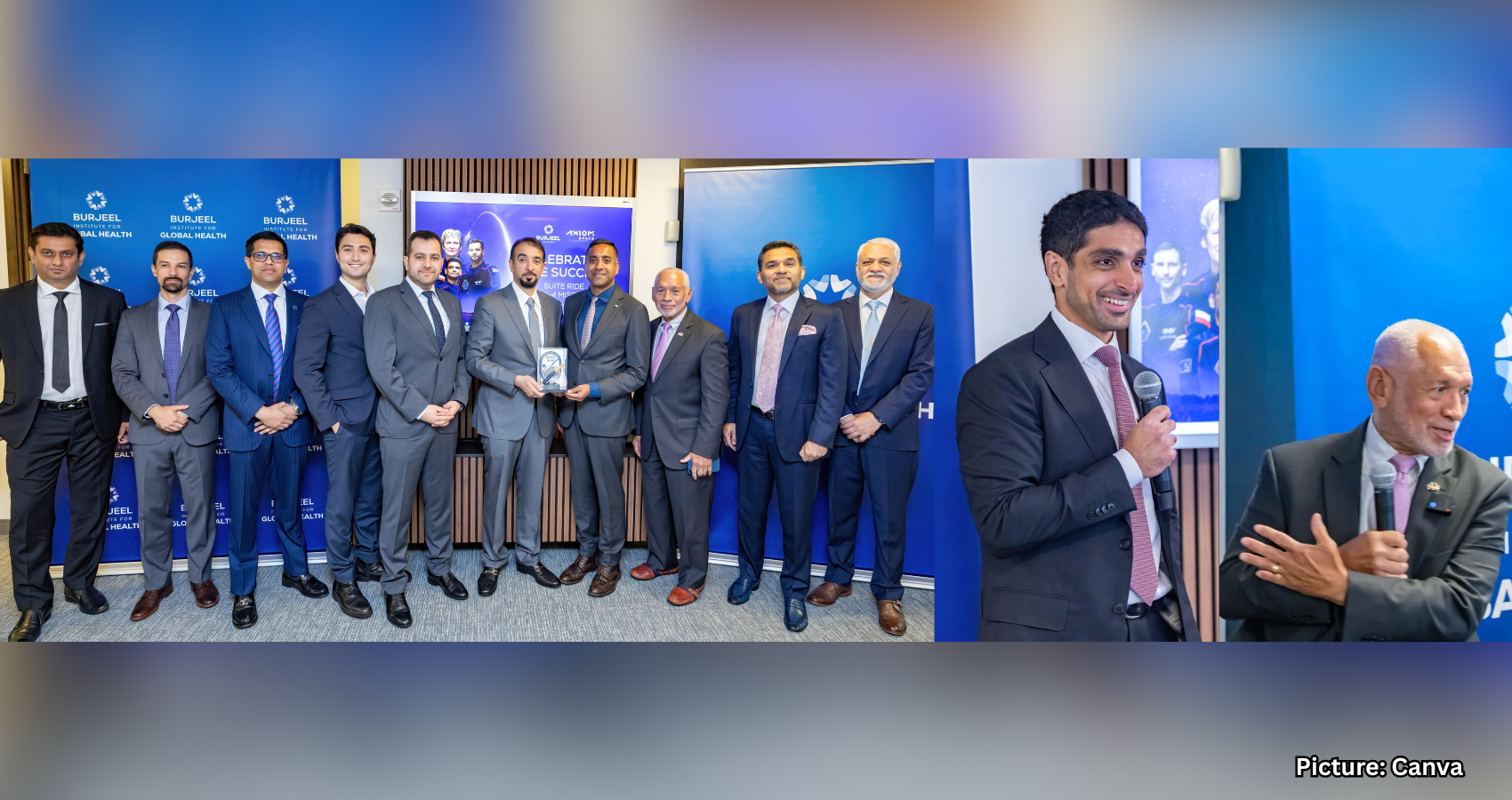Groundbreaking research aboard Axiom Mission 4 demonstrates that diabetes monitoring tools can function effectively in space, paving the way for inclusive space travel and advancements in remote healthcare.
Innovative research conducted during Axiom Mission 4 has revealed that diabetes monitoring tools can operate reliably in the unique environment of space. This significant finding opens new avenues for inclusive space travel and enhances remote healthcare capabilities.
The study, known as the “Suite Ride,” was a collaborative effort between Axiom Space and Burjeel Holdings, a leading healthcare provider based in the UAE. Preliminary results indicate that common diabetes monitoring tools can effectively track glucose levels from Earth to orbit and back, marking a potential breakthrough for astronauts living with diabetes.
On September 25, the findings were presented in New York at an event attended by experts from the fields of space and healthcare, alongside representatives from Axiom and Burjeel. Burjeel Chairman Dr. Shamsheer Vayalil welcomed attendees to the Burjeel Institute for Global Health, where notable speakers included Omran Sharaf, Assistant Foreign Minister for Advanced Science and Technology Affairs at the UAE Ministry of Foreign Affairs; Axiom Space CEO Tejpaul Bhatia; and former NASA Administrator Charles Bolden. Astronaut Peggy Whitson, who commanded Axiom Mission 4, participated in the event via remote connection.
Building on these findings, Burjeel announced its ambition to facilitate the journey of the first astronaut with diabetes into space. Founded in 2007 by Dr. Vayalil, Burjeel has established itself as a premier provider of super-specialty healthcare services in the UAE and Oman, with an expanding footprint in Saudi Arabia’s healthcare sector.
Axiom Mission 4, which took place in collaboration with SpaceX and NASA, launched on June 25, 2025, from Kennedy Space Center in Florida. The mission lasted 20 days, with 18 days spent aboard the International Space Station (ISS). The Suite Ride study utilized this mission to test various remote care tools, aiming to demonstrate that space travel is feasible for individuals with medical conditions previously deemed disqualifying.
The research confirmed that continuous glucose monitors (CGMs) and insulin pens can function effectively in the challenging conditions of space. Early data suggest that CGMs provide glucose readings with accuracy comparable to those obtained on Earth, enabling astronauts to monitor their glucose levels in real time and relay this information back to mission control. Insulin pens used during the mission are currently undergoing post-flight testing to verify the efficacy of the medication.
The Suite Ride study achieved several historic milestones, including the first continuous glucose monitoring of crew members aboard the ISS, the inaugural deployment of insulin pens in orbit, and the validation of glucose measurements through multiple methods in the microgravity environment of the space station.
This research builds upon previous commercial spaceflight experiments. For instance, Virgin Galactic’s Galactic 07 mission demonstrated that commercial insulin pens can accurately dispense doses in microgravity, adhering to International Organization for Standardization guidelines.
“This is about inspiring people everywhere,” said Gavin D’Elia, Global Head of Pharma for Axiom Space. “A diagnosis shouldn’t end your dream of space exploration. Together, we’re advancing the potential to fly the first astronaut with diabetes and to unlock innovation in healthcare,” D’Elia emphasized.
The implications of this research extend beyond space missions. It holds promise for improving healthcare in remote and underserved regions. “From 250 miles above Earth in space to 25 miles offshore on oil rigs, we’re pioneering new models in remote care,” stated Dr. Mohammad Fityan, Chief Medical Officer of Burjeel Holdings.
As part of the study’s unveiling, the Suite Ride campaign was prominently displayed in Times Square, highlighting the importance of these findings.
The results of the Suite Ride study are expected to influence healthcare practices far beyond the realm of space exploration. By demonstrating that diabetes monitoring and management can be effectively conducted in extreme and isolated environments, this research paves the way for enhanced care for individuals living in remote locations or working under challenging conditions worldwide, according to Axiom Space and Burjeel Holdings.
Axiom is also in the process of developing the world’s first commercial space station, known as Axiom Station.
Source: Original article

